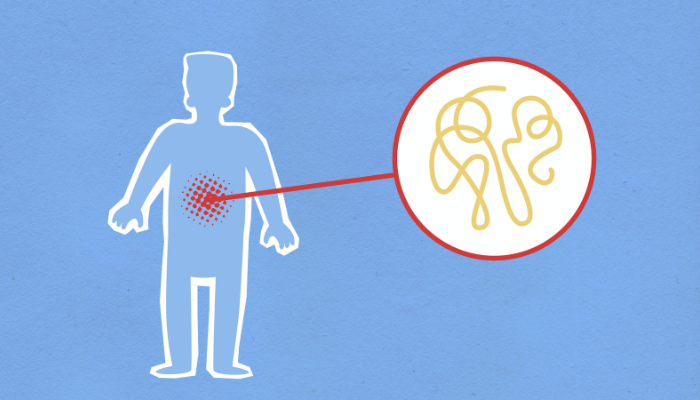|
Spike promotes infiltration of pro-inflammatory cells in mouse model by Andrea Lobo, PhD | January 30, 2024 SARS-CoV-2, the virus that causes COVID-19, may accelerate the development and progression of systemic sclerosis (SSc) through fibrosis (scarring), inflammation, autoantibody production, and blood vessel damage. That’s according to a study in South Korea that shows the SARS-CoV-2 spike protein that’s required for the virus to infect human cells promotes the infiltration of pro-inflammatory cells in the skin and lung tissue of an SSc mouse model. The study, “SARS-CoV-2 spike protein accelerates systemic sclerosis by increasing inflammatory cytokines, Th17 cells, and fibrosis,” was published in the Journal of Inflammation. SSc is an autoimmune disease that features scar tissue accumulating in the skin and potentially the internal organs, including the heart, kidney, lungs, and digestive tract. The disease is thought to develop due to excessive scarring, autoantibodies being produced that mistakenly attack healthy tissues, and damage to small blood vessels. COVID-19 induces the overactivation of immune cells, inflammation, autoantibody production, and bleeding disorders, similar to mechanisms in SSc and other autoimmune diseases. “While there is a single case report suggesting an association between COVID-19 and SSc, the effects of COVID-19 on SSc are not yet fully understood,” wrote the researchers who used human embryonic kidney cells that were manipulated to produce the SARS-CoV-2 spike protein and the ACE2 receptor, a protein to which the virus binds to enter cells. The spike protein is also known to induce fibrosis, the investigators said. Its presence significantly increased the activity of proteins associated with fibrosis, namely alpha-SMA and Col1a1. Effect of spike protein on SSc
The researchers used a mouse model of SSc to assess how the spike protein affects the disease, injecting the genes encoding the spike and the ACE2 receptor. The researchers first confirmed the protein was present in the animals’ blood. There was an increase in anti-phospholipid antibodies — which cause blood vessel complications in autoimmune diseases — in the mice that expressed the SARS-CoV-2 spike protein. After five weeks, the mice showed enhanced blood levels of certain immune T-cells, specifically the Th2 and Th17 cell types, “indicating heightened immune system activation and autoimmune symptoms.” The group injected with the spike protein showed a higher infiltration of Th2 and Th17 cells into the skin and lung tissues than the control mice. “We concluded that immune cells characteristic of autoimmune responses were activated and infiltrated the damaged tissues due to the presence of the SARS-CoV-2 spike protein in the mouse model,” the researchers wrote. Skin thickness and the accumulation of collagen in the skin and lung tissues were increased in the SSc mice that produced the spike protein. Collagen accumulation is a main feature of fibrosis. As seen in cell cultures, levels of alpha-SMA and Col1a1 were significantly increased in both skin and lung tissues from the spike-injected group. Along with fibrosis, the mice also had an increase in inflammatory molecules, particularly interleukin (IL)-4, IL-1 beta, and Il-17 (produced by Th17 cells) in the lung tissues, as well as TNF-alpha in the skin, over control mice. “Taken together, these results suggest that the presence of the SARS-CoV-2 spike protein in the tissue environment accelerates both fibrosis and the immune response in SSc,” said the researchers, who noted SARS-CoV-2 infection induces an excessive inflammatory response that’s marked by the rapid and abundant release of inflammatory molecules, therefore modulating immune cell function. This may also increase the permeability of blood vessels, aiding immune cells’ migration, which may also contribute to fibrosis. Further research should “determine if the SARS-CoV-2 spike protein directly influences the differentiation of T cells into Th2 and Th17 cells” and may explain how it impacts the interaction between immune cells and the cells that produce collagen, called fibroblasts, they said. Comments are closed.
|
AuthorScleroderma Queensland Support Group Archives
July 2024
Categories
All
|
Scleroderma Association of Queensland
©Scleroderma Association of Queensland. All rights reserved. Website by Grey and Grey.

